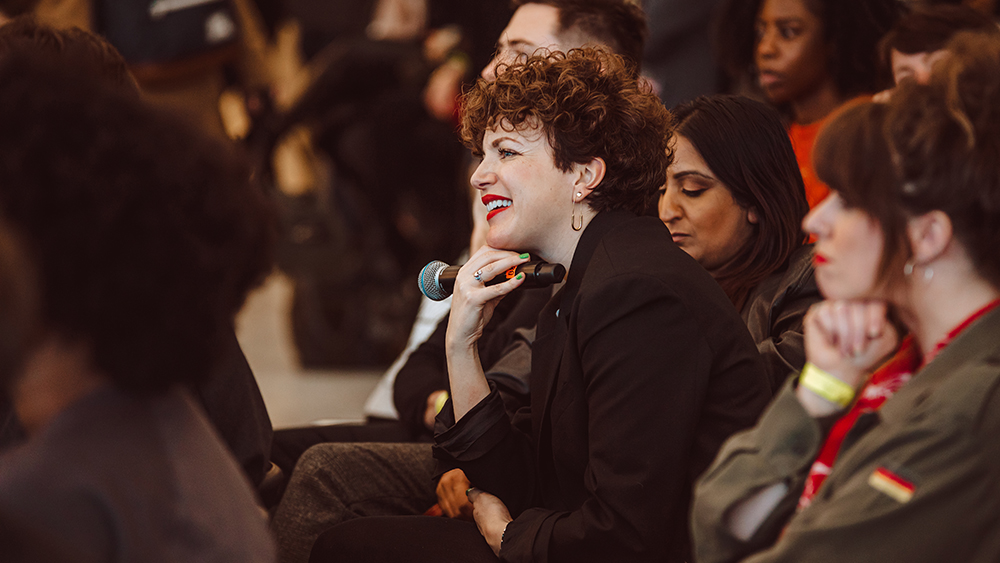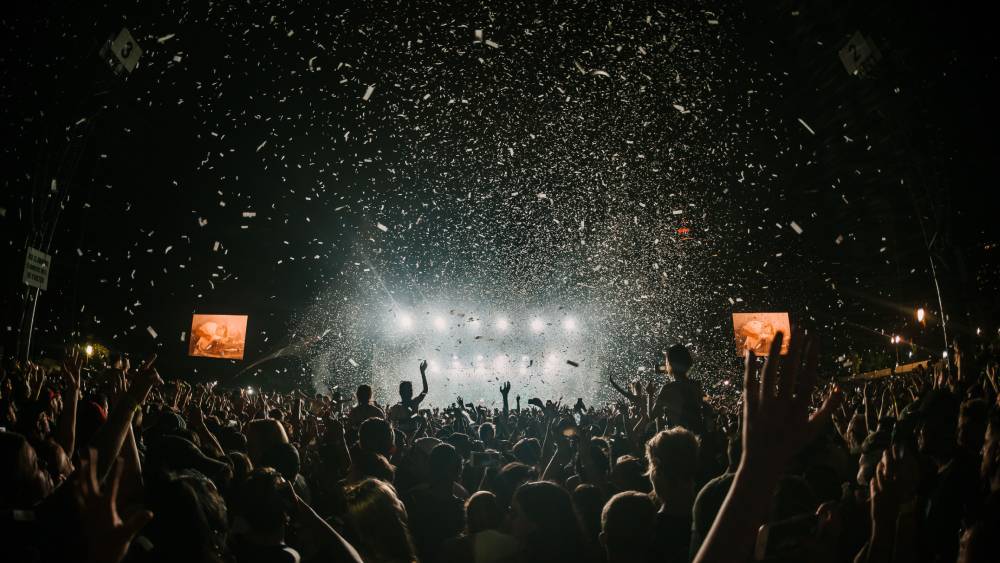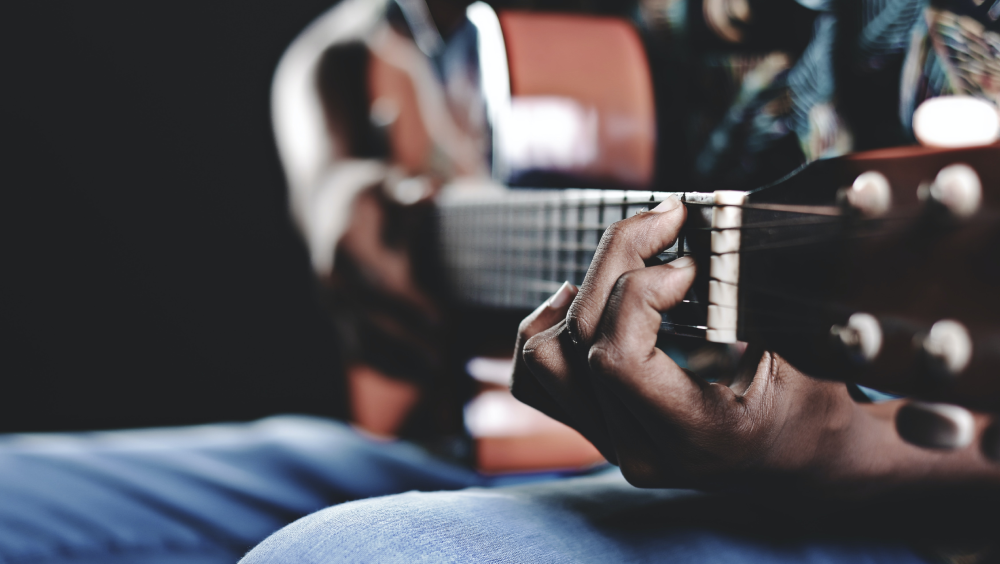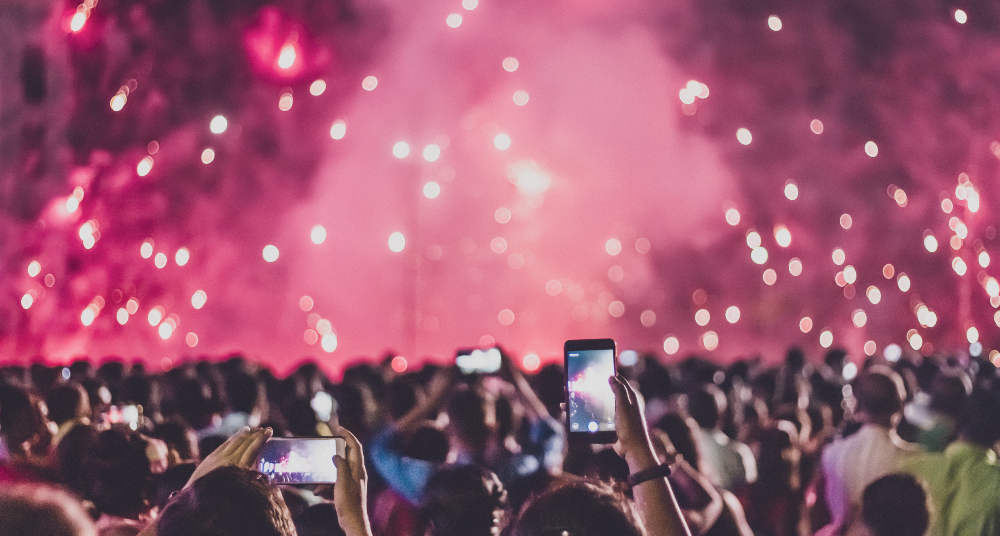The Annie Mac Presents London Conference took place last week, 6 March, and saw numerous industry influencers giving personal and professional insights into a rapidly evolving industry.
During one particular panel, titled 'Artistic Differences', Annie Mac was joined by RAYE, Mystery Jet’s Blaine Harrison and Mahalia who between them have 30 years experience within music.
Find out what we gleaned from the experts below.
The music industry is tough
RAYE: 'The biggest challenges and successes come under wanting to be heard and being heard. We create music to say something. It’s a fight and there’s so much that goes into what you see today.'
Blaine: 'I’ve always thought that your hardships and successes essentially are the same thing because the things that life throws in your path. Not just as an artist, but as a human being. But if you can get through them and come out the other side with records and songs on your album, they are the reward.'
It's hard to navigate, but you have to surround yourself with people who care about you ahead of everything else.'
You need the right team around you
Mahalia: 'I met my first manager when I was super young, that’s probably why the relationship broke down, I was changing so quickly. The person I was at 13 wasn’t the person I was at 16. It takes a while. I never knew what I needed, in my head I thought I needed a young hip guy, someone like being big bollocks all the time. It's hard to navigate, but you have to surround yourself with people who care about you ahead of everything else.'
RAYE: 'I’ve just parted ways with someone I’ve been working with for a very long time. It’s horrible. Navigating this industry can be traumatic, you want familiarity to feel safe, it took me so long to make the decision that’s best for me.'
Be yourself
Blaine: 'Don’t water yourself down, don’t try and make yourself palpable to what you think people want or what the industry wants you to be. They don’t want another Foals, or another Lizzo. Those artists are those artists because they became their best selves. You don’t need to be the fully formed product straight out of the gate, people will grow with you. Your musical journey is something that your audience will accompany you on. Humans are always evolving and changing so embrace that.'
RAYE: 'Social media is so toxic. Stop looking at what they’re doing, trust what you got. People like Lizzo, like Billie Eilish, doing something different to everyone else. That’s how you’re going to stick out because you aren’t copying no one, be uniquely you.'
The daily grind
RAYE: 'I'm constantly pitching. Songs I’ve had placed today have been a personal effort. For instance, being part of the Beyoncé camp for the Lion King, I put in three weeks to a month of writing and wrote 50 songs to have one selected and make it to the album, which is obviously an amazing achievement. But people don’t see the blood sweat, time and tears that go into securing stuff like that.
'So as a songwriter, it’s one thing to even get a placement, get a song to an artist that they record their vocals on, that they select it as an album track, but for it to be a single - that’s when you’re going to see your money for the time you put in. Then it’s the probability or not of whether the single does anything. Being an artist is creating art for people to judge, you have to be prepared for people to hate it. But this is the job I’ve signed up for.'
'Even when you’re improvising, I feel like your brain knows what it wants to do already. Trust yourself in the writing space.'
The process
Mahalia: 'The process is so different depending on the day, how I’m feeling and who I’m with. If you’re walking into a room with anybody, it’s always good to be prepared. 70 percent of the time, I walk into rooms and I’m like, I’m going to talk about this today. A lot of the time, I’m having sessions and I’m writing and have no idea what I’m going to talk about, so I’m like, let’s start and I’ll work it out. I start with melody and then I write and that’s just my way of writing. I also have this thing I’ve started doing, where I’ll just get onto the microphone and I’ll just start singing and sometimes when I’m singing I naturally fall into certain vowels or words and basically start pulling out those words and writing with that. Even when you’re improvising, I feel like your brain knows what it wants to do already. Trust yourself in the writing space.'
RAYE: 'It’s very tricky for me to know what RAYE is. Different parts of me are required for different types of music. For instance, dance music I find to be very symmetrical, mathematical, you have to be kind of dig into the maths of what makes something super hooky that you have to listen to it 10,000 times. But then, when I’m trying to express some soul, I’ll get on the piano and record my mic, then whatever comes out I’ll take out and chop up and add lyrics after. It’s difficult. I’m kind of just experimenting as I go, that’s why you hear so many different types of genres from me, I’m a mess.'
Mahalia: 'I totally bare my soul to everybody. I don’t know if there’s a formula, it took time for me. I’ve always been a bit too honest anyway, so I quite enjoy going into a room and telling people my life story anyway. What helps for me is talking for like an hour before you even start working, particularly if it’s someone you don’t immediately gel with. Literally speak to them. But sometimes, just go to another room, say to people I just want to work out what this is about I’m going to take 10 mins. And red wine.'
Songwriting splits
RAYE: 'It is sometimes very painful. I’m in the middle of three negotiations right now. My publishing company will usually handle the conversation. Imagine you have a producer in the room, two writers, the song gets wrapped up, but somebody does some additional production on a song and then decide that they want a percentage. We agree splits after otherwise it’s a bit soulless and can be a bit of a bad vibe in the room.
'A while ago I wrote song and we were sorting out splits, there was fourof us in the room, so we agreed we’d split it 4 ways 25% each. Then we left the room and these producers who are big in the game decided to add a snare drum, like nothing changed in the music, same chords, same top line and they wanted 15 percent. The artist agreed because it was a good look to have them as part of the song but who takes the hit? The little female top liners in the corner. Never the producer, never the artist. It’s the writers who get it hardest in those circumstances. Often the people who end up negotiating aren’t even in the room, so you only have my word, the writers’ word, someone’s else word.'
Mahalia: 'If I work with someone repeatedly, we know that it’s going to be a 50/50 split. But when you work with new people, that’s when it can get tricky. I’ve definitely taken massive blows from not reaching certain split commitments.'
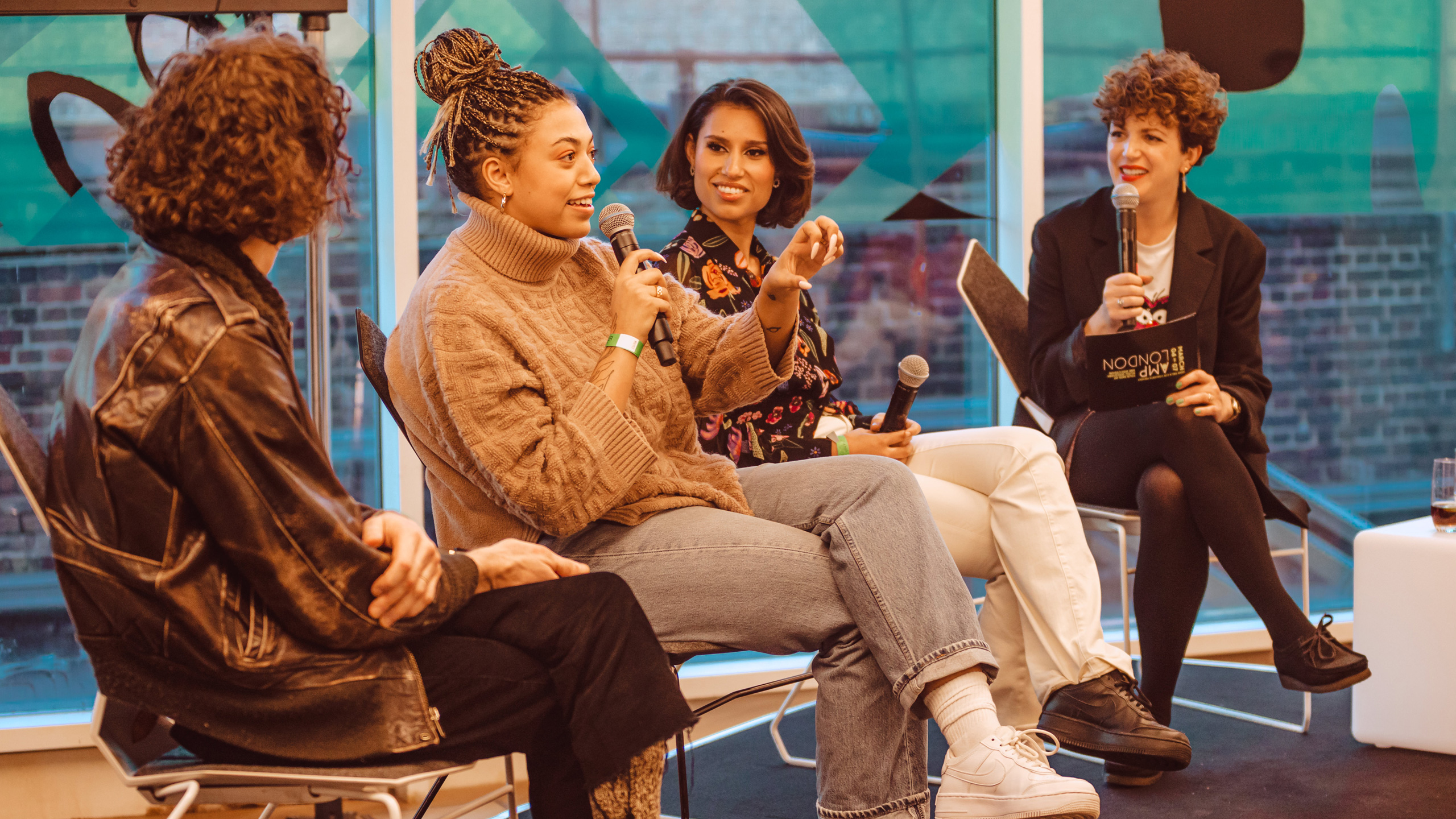
Where's the money?
Mahalia: 'I think it’s like £4000 for every 1 million streams. Two years ago, I got to see some sheets that broke down how much my songs were earning and how much I was actually seeing. That was really disgusting. I’m not making any money. I make money out of shows. Being an artist now, you can also make money out of branding and sponsorships and stuff. That’s the part of it I find most scary, unless you’re doing that constantly, you’re not really making a lot of money. As signed artists, we basically take a risk to say we’re going to go really deep into a hole and hope that we come out of it.'
'Every artist in 2020 has to define their own relationship with social media, there’s no one size fits all. Decide how much of your life you want to be online, it can be invasive.'
The impact of social media
Mahalia: 'Every single second of every day is movement, there’s no time to stop and take a break. Even if I’m sat at home having a day off, it doesn’t exist. There's the feeling of being on all the time, my brain is always working. The frustrating thing is that the song writing eventually becomes the smallest part of what you do.'
Blaine: 'Every artist in 2020 has to define their own relationship with social media, there’s no one size fits all. Decide how much of your life you want to be online, it can be invasive. Big thing that’s changed is I think in the 00’s you had more space to grow as an artist, today there’s more pressure to arrive as the fully formed product. You can’t grow up in the shadows. But it’s also quite exciting to be discovering artists right at the beginning of their journey.'
What would you change?
RAYE: 'Get rid of social media.'
Mahalia: 'I’d totally not allow any media publications or journalists to write badly about artists or compare artists. Comparisons are really frustrating, really boring and lazy. It creates a competitive environment that doesn’t need to be there. I was being compared to two particular artists constantly, and I had to unfollow them because it was playing with my head. It wasn’t good for me. I did follow them back eventually.'
Blaine: 'Something that’s really important to me is accessibility. Music is still the most powerful medicine we’ve invented, it’s for everyone. As an artist that uses crutches, when I show up at venues, they haven’t thought about how to cater for different types of artist’s needs. We recently said that we’d only play at accessible venues and I really feel that’s super important. For a lot of promoters and the industry as a whole, they don’t see those artists on those festival bills or showing up at venues so they’re thinking why am I going to spend £20,000 on a lift, But it’s a chicken and egg situation, make your venue accessible and those artists will come through.'
Photo credit: Luke Dyson